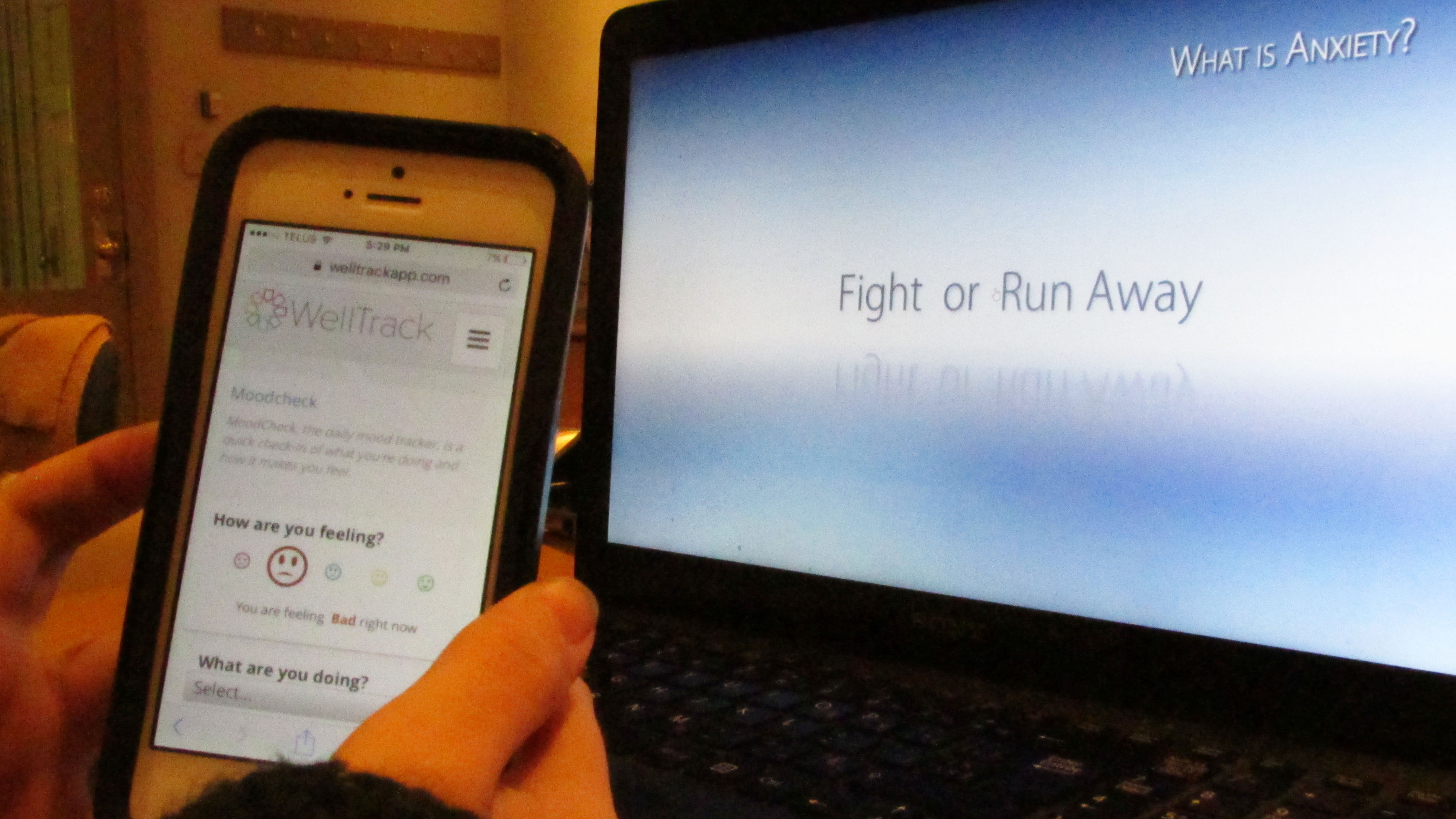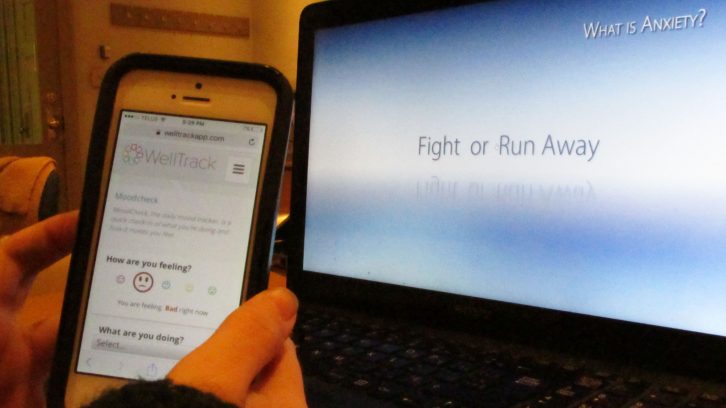Mental Health
WellTrack offers university students some help
Dalhousie promotes a new mental health app

caption
WellTrack app and online services help students with mental health issues
caption
The WellTrack app and online services help students with mental health issues.Mental health therapy on a touch screen? Well now there’s an app for that.
It’s called WellTrack and it uses Cognitive Behavioural Therapy (CBT) to help people with low mood, depression, stress, anxiety and phobias.
The app is completely anonymous and people can explore it alone or request a coach for extra support.
Julie Longard is studying clinical psychology at Dalhousie and is the WellTrack coach for the university. She says her main job is helping students connect with WellTrack and making its lessons more meaningful. This way students can personalize what they’ve learned and use it to help themselves.
“It’s one thing to read a self-help book but another to actually apply it,” she says. “Sometimes it takes a bit more creativity or extra support … the biggest thing is helping them brainstorm how to apply those strategies to their own life.”
Longard also gives students extra support by doing check-ins and being around to talk through email or even by phone if a student feels it would be more helpful.
The app opens with a general wellness assessment. It determines where the student is struggling and which therapy module for anxiety or depression, would be most helpful for them at that time.
WellTrack includes a variety of mental health tools like a daily mood tracker, personal progress dashboard and educational videos.
The ‘Zen Room,’ for example, is an interactive video which gives guided relaxation tours. The user can choose different activities like looking at relaxing paintings and scenes or they can listen to a calming voice guide them through breathing techniques and help them visualize themselves in a peaceful environment.
While Longard believes the app is a good resource, she says it isn’t a “one size fits all type of solution.”
“Obviously our students are struggling with other difficulties beyond the scope of WellTrack,” she says. “It’s more like one type of support that some people find useful either as a starting point or for people who have less severe difficulties they’re struggling with … I see it as one resource that Dalhousie Counselling offers not like a solution for everyone.”
The app was created by Dr. Darren Piercey, a psychology professor at the University of New Brunswick.
When Piercey started working on the app with other universities, he realized “there was a great need for a product that was designed to focus on the major issues students have around mental health.”
According to a 2016 report, 20 per cent of Canadian students struggle with loneliness, sadness, hopelessness, anger, depression, anxiety or other mental health issues.
The data Piercey collected through WellTrack shows there’s an even greater need for student mental health resources than predicted.
He says these percentages are closer to “about 45 per cent.” This makes sense because “the people who would most likely use the product are the same people who would have a mental health issue,” says Piercey.
For him these numbers show that mental health treatment should be a major concern for every university across the country. He hopes apps like WellTrack can help alleviate some of the burden on counselling services. This is possibly one of the reasons why Dalhousie University made the app accessible to students.
Counselling services at Dalhousie are known for having long waiting lists.
The Dalhousie Gazette published an article in late November written by Caitlin Grogan stating, “from the students I have talked to, the wait time from their first call to counselling services to their first real appointment varies from 10 weeks to 23 weeks. That’s nearly six months.”
Sebastien Clairmont, a peer support worker at Dalhousie, says the university has been adding more mental health resources because of the long waiting lists.
“It’s a problem that we only have a certain amount of counselors and we have a ton of students that need mental health support,” says Clairmont. “We’re trying to do everything we can to make sure the resources are there.”
Last year Dalhousie hired two student peer support workers to give students the opportunity to talk one on one with another student who’s struggled with their own mental health.
While peer support has been around for over a year, Clairmont says few students have come to talk with them and he doesn’t know anyone who is currently using the self-help app.
He believes WellTrack and peer support are great resources for students, but they’re not going to be the perfect fit for everyone. Clairmont tried WellTrack and said it wasn’t the right resource for himself: “I’m not the type of person to use phone apps for things like that.”
While mental health apps aren’t for Clairmont he’s sure other students find them very useful. He believes it’s important to have a variety of mental health resources openly available to students and says there needs to be a push on campus in promoting these services.
“I know from being in a dark place before, if you’re lying in bed all day it’s really hard to get the energy to go and search around (for help),” he says. “The more that administration or student leaders work to advertise, promote or even get the word out, the better.”

